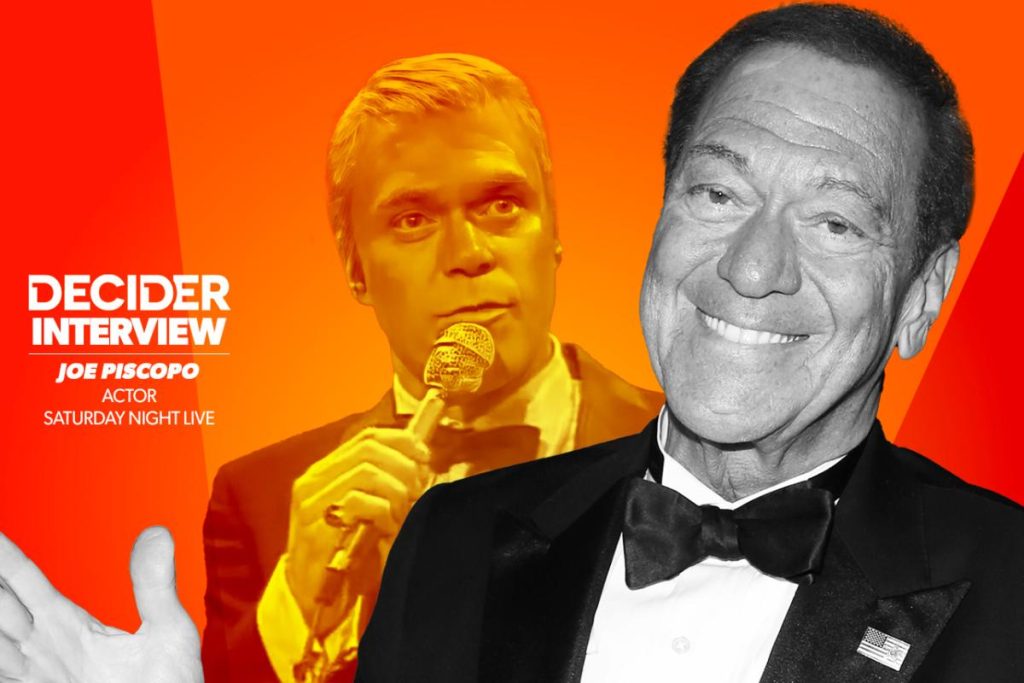Joe Piscopo is a name that often comes with preconceived notions, thanks to pop culture references like The Simpsons and a Tom Petty song. But beyond the jokes and dismissals, Piscopo remains a hardworking entertainer who has carved out a career that spans stand-up comedy, acting, music, and radio. His recently released memoir, Average Joe: The Memoirs of a Blue-Collar Entertainer, offers a breezy, humorous, and insightful look into his life, from his early days growing up in Newark, New Jersey, to his time as a key figure in the comedy world during the 1980s. The book is filled with stories about his time at the iconic Improv comedy club in New York, where he befriended legends like Jerry Seinfeld, Larry David, and Robin Williams, and his four-year stint on Saturday Night Live (SNL), where he formed an inseparable bond with Eddie Murphy.
Piscopo’s journey into the entertainment industry was far from straightforward. Growing up in Newark, a city often maligned but deeply significant to him, he learned the value of hard work and perseverance. His father, an Italian immigrant, instilled in him a strong sense of pride and responsibility, which would later guide his career. Piscopo’s early days as the emcee at the Improv were particularly formative. He marveled at the talent that passed through the club’s doors, but he also witnessed the unpredictability of success in comedy. While some comedians, like Rodney Dangerfield, becameicons, others faded into obscurity despite their talent. Piscopo attributes this disparity to a mix of luck, timing, and relentless dedication. For him, success wasn’t just about being funny—it was about putting in the work, even when the audience was small and the hours were late.
When Piscopo joined SNL in the early 1980s, he entered a show in transition. The original cast had left, and the program was struggling to find its footing. Piscopo admits that his first few months on the show were rocky, but things turned around when he began collaborating with Eddie Murphy. The two became a dynamic duo, both on and off screen, and their chemistry helped revitalize the program. Piscopo often describes himself as a “utility player” on SNL, willing to take on any role, no matter how small or unconventional. This approach earned him the respect of his peers, including Dan Aykroyd, whom he admires for his ability to bring any character to life. One of the book’s highlights is Piscopo’s account of how he and Murphy created the sketch “Dion and Blair,” a comedic take on hairdressers that became a fan favorite. It’s clear that Piscopo’s time on SNL was both challenging and rewarding, shaping him into the entertainer he is today.
Piscopo’s career extends far beyond SNL. He has appeared in films like Johnny Dangerously and even had a memorable role on Star Trek: The Next Generation as a hologram teaching Data about comedy. One of the most surprising aspects of his career was the release of “The Honeymooners Rap,” a song he recorded with Eddie Murphy that became a huge hit. The track, which paid homage to the classic TV show The Honeymooners, was ad-libbed during the recording session, with Murphy stepping out to watch Prince perform at the American Music Awards. The song’s success was a testament to Murphy’s star power and Piscopo’s ability to think on his feet. Over the years, Piscopo has also become known for his impressions, particularly his tribute to Frank Sinatra, whom he met and admirers deeply. Sinatra, it seems, approved of Piscopo’s act, which speaks volumes about his talent.
While Piscopo has had his share of successes, he has also faced criticism and misunderstanding. Some people dismiss him as a novelty act or a punchline, and his vocal support for Donald Trump has alienated him from some in the entertainment industry. However, Piscopo remains unapologetic about his views. He describes himself as a “blue-collar entertainer” who relates to everyday people, and he believes his support for Trump stems from a shared commitment to hard work and loyalty. Piscopo’s political stance has led to some tense moments, but he insists that he respects people’s differences and only asks for the same in return. His loyalty to Trump is rooted in a deep sense of friendship and respect, even as he acknowledges that not everyone will agree with his perspective.
Today, Piscopo continues to work tirelessly, performing in casinos, hosting a morning radio show, and advocating for causes close to his heart, such as supporting first responders and criticizing policies like congestion pricing in Manhattan. He remains proud of his New Jersey roots and is optimistic about the state’s future under leaders like Mayor Ras Baraka of Newark. Through it all, Piscopo’s memoir offers a candid and entertaining look at his life, reminding readers that success in show business is rarely linear and often involves a mix of talent, grit, and a bit of good fortune. Love him or not, Joe Piscopo is a true original, and his story is as inspiring as it is unpredictable.









